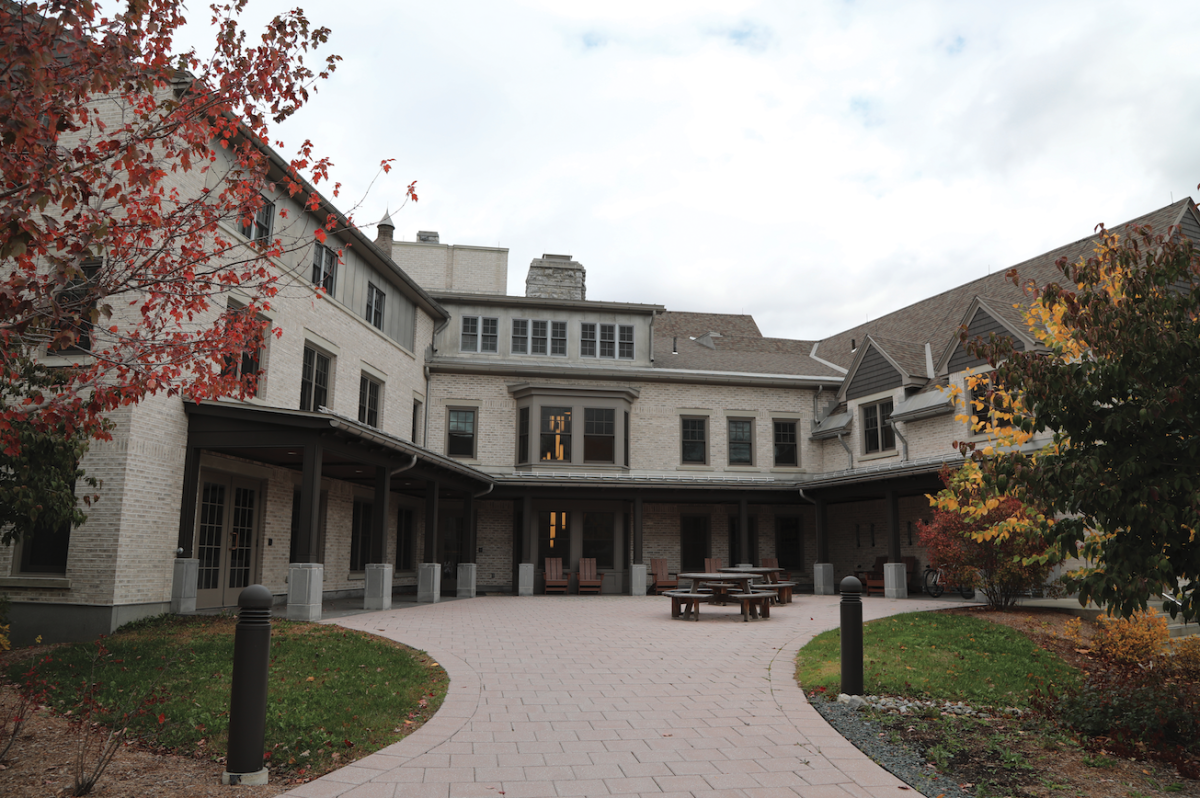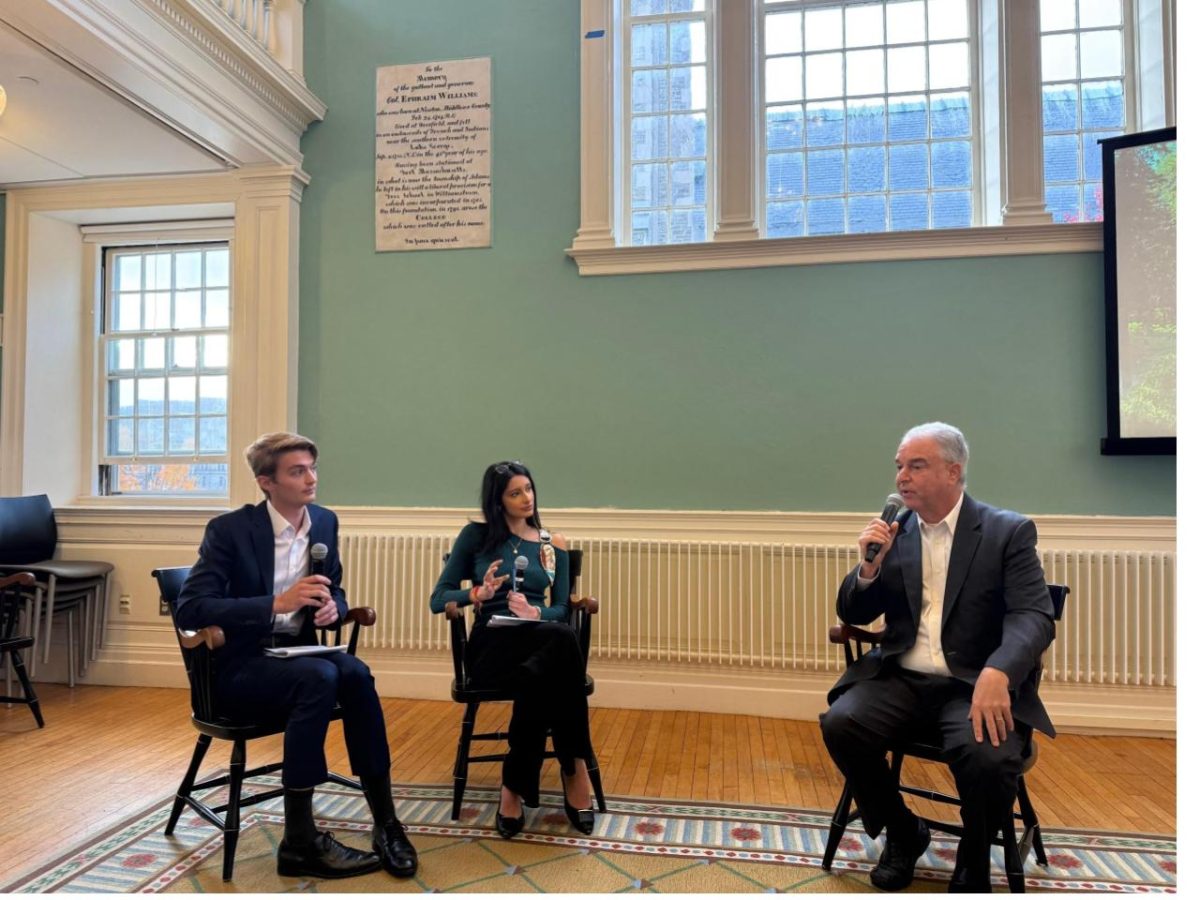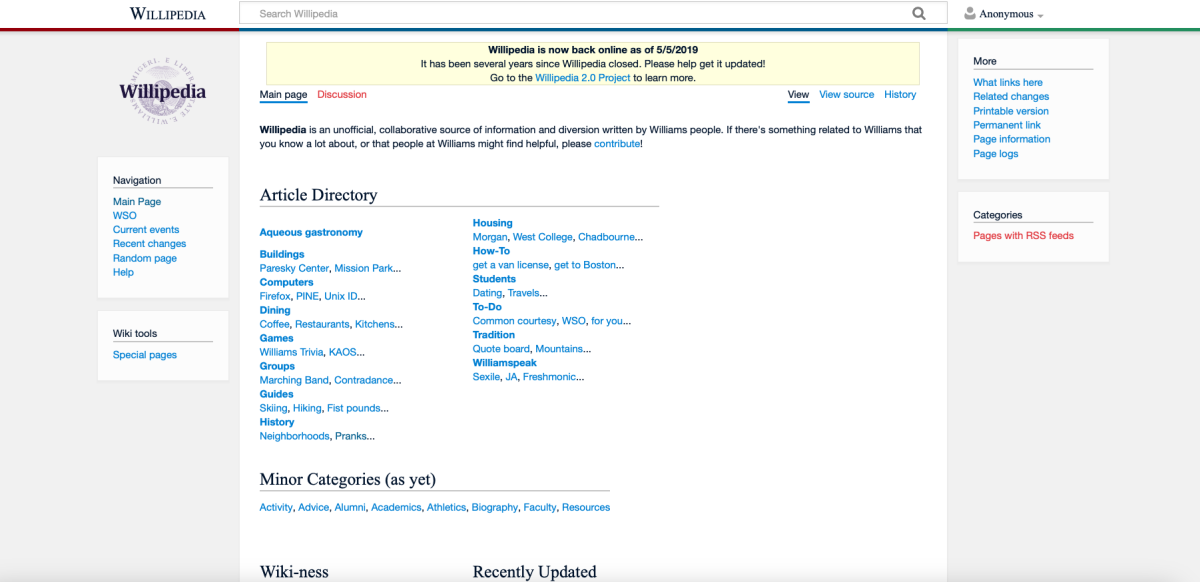With the College’s self-imposed deadline for reconsidering its COVID-19 policies arriving tomorrow, members of the administration and the newly formed ad hoc committee on COVID and campus life policies are working to determine what changes the College is equipped to make safely. As of press time, the College is expected to allow students off-campus starting tomorrow while increasing mandatory testing to twice a week, but the degree to which students will be allowed to travel remains undetermined.
While the College administration has the final say in any rule changes or lack thereof, President of the College Maud S. Mandel announced on Sept. 22 the creation of the new ad hoc committee tasked with making recommendations on how the College’s policies can best reflect student, faculty and staff opinions while maintaining a safe environment.
The committee officially makes recommendations that are then approved or denied by Mandel and the College administration. However, given that the committee itself contains many senior staff — including Sandstrom, Dean of the Faculty Safa Zaki, and Vice President for Finance and Administration Fred Puddester in addition to four student representatives — most conclusions that the committee comes to are likely to be shared by the administration.
“What our committee is primarily looking at is both on-campus and off-campus policies regarding COVID, and how that’ll impact the campus community, especially students,” said Aria Mason ’21, one of two representatives from The Advisory Board for Lobbying and Elections (TABLE) on the committee. “We’re really trying to focus on what the student experience will look like within all of these changing and emerging policies.”
For now, the committee is focused on determining what the College’s reopening to the outside world might look like, with a meeting on Monday, another scheduled today and an all-campus announcement of new policies imminent today or tomorrow.
Dean of the College Marlene Sandstrom wrote in an all-campus email on Aug. 22 that “students living in campus residences will still be restricted to campus through the end of September,” and that students were not permitted to visit any off-campus buildings until Oct. 1 “at the earliest.” Many students took that to mean that travel policies will automatically loosen at the beginning of October, but Sandstrom cautioned in an email to the Record that that may not be the case.
“To be clear, it’s possible that that process could lead to no changes at all, if we feel it’s too risky or premature to start relaxing the rules,” Sandstrom said. “We need to look at all the options, although I would of course be happy if we deemed that the situation were stable enough that we could give people a little more latitude.”
According to Julia Tucher ’21, the student representative on the committee representing Junior Advisors, the committee is very likely to recommend allowing students off-campus to some degree, but uncertainties remain.
“Most likely,” Tucher said, “the recommendation is going to be to draw a boundary around North Adams which includes Walmart, because the biggest concerns were Walmart, Stop & Shop and Rite Aid, and also personal care places.”
In order to offset these new expanded boundaries, the committee will also recommend that students be tested twice a week; according to Tucher, unlike the discussions on off-campus boundaries, the testing decision was not a difficult one to make.
An additional focus is on quickly finding a solution for allowing students living in one- or two-person pods to have a less restrictive experience on campus. Beyond these immediate changes, the committee is charged with any number of longer-term questions.
“How do you interact with people across pods?” TABLE representative Adam Jones ’21 asked as an example. “Do we keep kitchens closed? Do we allow people to travel within Berkshire County? What do we keep the limit on outdoor gatherings to be? Do we open the gym? Do we open the pool? How do we manage the interactions that happen on campus?”
Even further into the future, the committee is also tasked with determining what the College might look like in the spring semester, though the decision on whether or not to stay open is out of their hands. Should the campus indeed reopen in February, which Jones said is currently the operating assumption, the committee will likely have to answer questions similar to the ones it is faced with now, but with the added complications of cold weather and spring break.
The committee has also set up a portal for comments or recommendations, which Jones said would be checked regularly. All comments will be discussed by the committee — even ones that are manifestly ridiculous from a safety standpoint, Jones said — but any decisions about whether to implement student feedback or loosen restrictions will depend on the severity of the pandemic situation.














